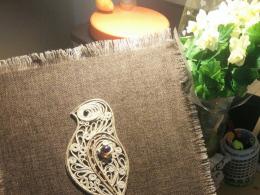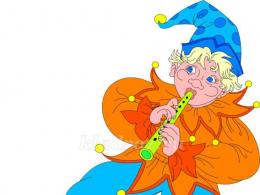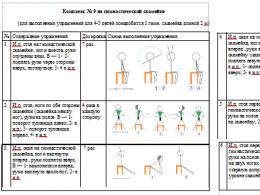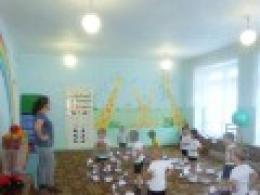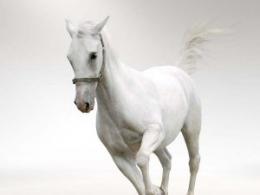European Football Championships: to defend the title. european football championships european football championship every year
Football world championship, mundial. European Football Championship. Football at the Olympics. Best Footballer of the Year
FIFA World Cup, mundial
- Modern football originated in the middle of the 19th century in England.
The winners of the World Cups (FIFA World Cups) were:
World Cup 1930 - Uruguay(Golden Ball, the prize for the best player of the first World Cup went to the defender of the Uruguayan national team Jose Nasassi). Organizer country - Uruguay;
World Cup 1934 - Italy(The Golden Ball was awarded to the scorer of the Italian national team Giuseppe Meazza). Organizer country - Italy;
World Cup 1938 - Italy(Golden ball for the striker of the Brazilian national team Leonidas da Silva, "Black brilliant");
World Cup 1950 - Uruguay(The best player in the 1950 World Cup is the striker of the Brazilian national team Zizinho);
World Cup 1954 - Germany(Golden ball at the Hungarian football player, striker Ferenc Puskasa, nickname "Galloping Major");
World Cup 1958 - Brazil(Golden Ball went to the defensive midfielder of the Brazilian national team Didi);
World Cup 1962 - Brazil(The best football player of the 1962 World Cup is the right striker of the Brazilian national team Garrincha, "Book-legged angel");
World Cup 1966 - England(The Ballon d'Or went to England attacking midfielder Bobby Charlton);
World Cup 1970 - Brazil. In the final, having defeated the Italian national team with a score of 4: 1, Brazil for the first time in the history of football won the league title for the third time and received a golden cup - the “Golden Goddess Nika” in eternal storage (Golden Ball for the striker of the Brazilian national team, the legendary Pele);
World Cup 1974 - Germany(The best football player of the 1974 World Cup is the Dutch striker Johan Cruyff, "Flying Dutchman");
World Cup 1978 - Argentina(Best football player of the 1978 World Cup - Argentine striker Mario Alberto Kempes);
World Cup 1982 - Italy(FIFA Golden Ball from the Italian striker Paolo Rossi);
World Cup 1986 - Argentina(Best player of the 1986 World Cup - Argentinean Diego Armando Maradona, nickname "Ten", "Fluff");
World Cup 1990 - Germany(The FIFA Golden Ball went to the striker of the Italian national team Salvatore Squillach and, "Toto");
World Cup 1994 - Brazil(The best player of the World Cup 1994 - Romario, "Shorty", Brazil);
World Cup 1998 - France(The best football player of the 1998 World Cup - Ronaldo, "Critter", Brazil);
World Cup 2002 - Brazil(FIFA Golden Ball went to the goalkeeper of the German national team Oliver Kanu, nicknamed "King Kang");
World Cup 2006 - Italy(Golden ball at the Frenchman Zinedine Zidane, "Zizu");
World Cup 2010 - Spain(The FIFA Golden Ball went to the striker of the Uruguayan national team Diego Martin Forlanu, nickname "Cachavacha");
World Cup 2014 - Germany. The 20th anniversary FIFA World Cup was held from June 12 to July 13, 2014 in Brazil. The opening match (Brazil-Croatia) took place in São Paulo at the Itakeran Arena. The Germany-Argentina final took place in Rio de Janeiro at the Maracanã stadium - 1:0 (after extra time) - for the first time in the history of football, a European team took the World Cup in South America. Still have the golden ball Lionel MESSI Argentina (nickname "Baby").
This championship pioneered the Automatic Goal Detection (GLT) system and introduced breaks in matches when playing in the heat, as well as referees using vanishing white spray cans to mark on the field when taking free kicks and free kicks.
The biggest sensation of the tournament: the loss of Brazil to Germany in the semi-finals with a phenomenal score of 1:7.World Cup 2018 - the 21st FIFA World Cup will be held in Russia. The World Cup will be held at the stadiums of thirteen Russian cities, which are divided into 4 clusters (separately, Yekaterinburg): in Moscow, Kaliningrad, St. Petersburg, Volgograd, Kazan, Nizhny Novgorod, Samara, Saransk, Yaroslavl, Krasnodar, Rostov-on-Don, Sochi, Yekaterinburg. 3 stadiums are being prepared in Moscow. The BSA Luzhniki is to be reconstructed, two other stadiums are under construction: Spartak (project by the American construction company AECOM) and VTB Arena Dynamo Central Stadium.
KROST is one of the largest diversified construction companies. The company has several business lines - construction and industrial complexes, development of commercial and residential real estate, rental of commercial real estate in Moscow, the fitness and wellness industry "ELSE-club", a network of folk restaurants.World Cup 2022 - the World Cup will be held in the Arabian Emirate of Qatar. 12 stadiums from seven cities in Qatar will host matches of the 22nd World Cup.
In January 2017, the Council of the International Football Federation approved an increase in the number of participants in the final part of the World Cup from 32 to 48 teams. The changes will take effect from 2026.
1982 FIFA World Cup. The final. Italy - Germany
FIFA Women's World Cup
- The first FIFA Women's World Cup was held in China in 1991.
FIFA Women's World Cup Winners:
1991 World Cup in China - USA(final USA - Norway 2:1). Golden Ball - Karin Jennings Carin JENNINGS, USA.
World Cup 1995 in Sweden - Norway(final Norway - Germany 2:0). Golden Ball - Hege Riise Hege RIISE, Norway.
World Cup 1999 in the USA - USA(final USA - China 0:0 pen. 5:4). Golden Ball - Song Wen SUN Wen, China.
World Cup 2003 in the USA - Germany(final Germany - Sweden 1:0). Golden Ball - Birgit Prince Birgit PRINZ, Germany.
World Cup 2007 in China - Germany(final Germany - Brazil 2:0). Golden Ball - Martha MARTA, Brazil.
World Cup 2011 in Germany- Japan(final Japan - USA 2:2 pen. 3:1). Golden Ball - Homare Sawa Homare SAWA, Japan.
World Cup 2015 in Canada from June 6 to July 5 - USA(final USA - Japan 5:2). The United States became 3-time world champions in women's football. American Ballon d'Or Carly Lloyd Carly Lloyd.
European Football Championship
- In 1960, at the suggestion of the President of the French Football Federation, Henri Delaunay (1883-1955), the first European Cup among national teams was held, later the European Championship (UEFA European Championship).
UEFA European Football Championship Winners:
- EURO 1960 - USSR(the best player of the first European Championship is the legendary goalkeeper Lev Yashin);
- EURO 1964 - Spain(best player of Euro 1964 - Spanish midfielder Luis Suarez);
- EURO 1968 - Italy(the best player in Euro 1968 is the goalkeeper of the Squadra Azzurra Dino Zoff);
- EURO 1972 - Germany(the best player in Euro 1972 is the German striker Gerd Müller);
- EURO 1976 - Czechoslovakia(the best player in Euro 1976 is the German striker Dieter Müller);
- EURO 1980 - Germany(the best player in Euro 1980 is the German striker Karl-Heinz Rummenigge, "Kalle"); At this European Championship for the first time 8 national teams took part in the final part (previously 4), and the host country got a place in the final part automatically.
- EURO 1984 - France(best player of Euro 1984 - French midfielder Michel Platini);
- EURO 1988 - Netherlands(best player in Euro 1988 - Dutch striker Marco van Basten, "Utrecht Swan");
- European Championship 1992 - Denmark(best player in Euro 1992 - Danish goalkeeper Peter Schmeichel, "Great Dane");
- European Championship 1996 - Germany(the best player in Euro 1996 is a German midfielder Matthias Sammer, "Red-haired meteor"); At the 1996 European Championship, for the first time, 16 teams participated in the final part, which were divided into 4 groups.
- European Championship 2000 - France(Best player in Euro 2000 - French attacking midfielder Zinedine Zidane);
- European Championship 2004 - Greece(best player of Euro 2004 - Greek defensive midfielder Theodoros Zagorakis);
- European Championship 2008 - Spain(best player of Euro 2008 - Spanish midfielder Xavi);
- European Championship 2012 - Spain. For the first time in the history of modern football, this is the third victory in a row for one team in the top finals of the World Cup and the European Championship (the midfielder of the Red Fury was recognized as the best player in the final match and the Euro 2012 championship). Andres Iniesta).
European Football Championship 2012. Final. Spain - Italy. All goals
- European Championship 2016 - Portugal. The 15th European Championship was held in France (already for the 3rd time) in a month - from June 10 to July 10, 2016. By decision of the UEFA Executive Committee, 24 teams instead of 16 participated in the final pool of the championship for the first time (the same number as 24 at the World Cup).
Euro 2016 opening match France - Romania 2:1. French winning goal scorer Dimitri Payet- "closest to God."Final July 10 at the stadium "Stade-de-France" in the suburbs of Paris France - Portugal. Dimitri Gebek Payet vs Cristiano Ronaldo. But there was no confrontation. At the beginning of the first half, the injured Ronaldo was taken off the field (by the way, an injury from a collision with Payet). And at the beginning of the 2nd half, Payet was also replaced. Regular time ended in a draw 0:0.
In extra time, a goal was scored by the Portuguese striker Eder (he moved from Guinea-Bissau to Portugal as a child). France 0-1 PortugalFrench striker Antoine Griezmann was named the best player in Euro 2016. Symbolic team of the tournament: Rui Patricio (Portugal), Pepe (Portugal), Jerome Boateng (Germany), Rafael Guerreiro (Portugal), Joshua Kimmich (Germany), Toni Kroos (Germany), Joe Allen (Wales), Aaron Ramsey (Wales) , Antoine Griezmann (France), Dimitri Payet (France), Cristiano Ronaldo (Portugal).
European Football Championship 2016. Final. Eder goal
Women's European Football Championship
- The European Football Championship for Women under the auspices of UEFA has been held since 1980 (from 1987 to 1997 it was held every 2 years, then the cycle was increased to four years).
Women's European Football Championship Winners:
EURO 1984 - Sweden(UEFA Golden Player - Pia Sundhage, Sweden)
EURO 1987 - Norway(UEFA Golden Player - Heidi Stere, Norway)
EURO 1989 - Germany(UEFA Golden Player - Doris Fitschen, Germany)
European Championship 1991 - Germany(UEFA Golden Player - Sylvia Nide, Germany)
European Championship 1993 - Norway(UEFA Golden Player - Hege Riise, Norway)
European Championship 1995 - Germany(UEFA Golden Player - Birgit Prince, Germany)
European Championship 1997 - Germany(UEFA Golden Player - Carolina Morace, Italy)
European Championship 2001 - Germany(UEFA Golden Player - Hanna Ljungberg, Sweden)
European Championship 2005 - Germany(UEFA Golden Player - Anne Myakinen, Finland)
European Championship 2009 - Germany(UEFA Golden Player - Inka Grings, Germany)
European Championship 2013 - Germany(UEFA Golden Player - Lotta Shelin, Sweden)Beautiful women's football
Football at the Olympics
- Football received official status as an Olympic sport in 1908.
- The winners of the Olympic football tournaments (1908-2012) were:
In 1908 and 1912 - Great Britain; 1920 - Belgium; 1924 and 1928 - Uruguay; 1936 - Italy I; 1948- Sweden; 1952, 1964 and 1968 - Hungary; 1956 and 1988 - USSR; 1960 - Yugoslavia; 1972 - Poland; 1976 - GDR; 1980 - Czechoslovakia; 1984 - France; 1992 - Spain; 1996 - Nigeria; 2000 -Cameroon, 2004 and 2008 - Argentina, 2012 - Mexico.The winners of the women's football competition at the Olympic Games (1996-2012) were:
In 1996, 2004, 2008 and 2012 - USA, in 2000 - Norway. - At the 2016 Olympics in Rio de Janeiro, 16 teams participated in the men's football tournament (August 4-20). Portugal: Germany, Nigeria: Denmark, South Korea: Honduras, Brazil: Colombia advanced to the Playoffs of the tournament (1/4 finals).
Brazil: Honduras, Nigeria: Germany advanced to the semi-finals.
Finalists Brazil and Germany. Brazilians, led by their captain Neymar, nevertheless snatched victory from the Germans (regular time 1:1, penalties 5:4) and became Olympic champions for the first time.12 national teams took part in the Rio 2016 Women's Football Tournament (August 3-19). Brazil: Australia, USA: Sweden, China: Germany, France: Canada advanced to the Playoffs.
Brazil: Sweden and Canada: Germany advanced to the semi-finals.
Finalists Sweden and Germany. Germany- OI-16 champion (for the first time in women's football), Brazil third.
The best player of the year. FIFA Golden Ball (FIFA Ballon d'Or)
UEFA European Footballer of the Year
- Football award established by UEFA in 2011.
- 2011 G. Lionel Messi forward, Argentina (Barcelona)
- 2012 G. Andres Iniesta midfielder, Spain (Barcelona)
- 2013
G. Franck Ribery midfielder, France (Bayern)
Nadine Angerer recognized as the best player in Europe in the season 2012/2013. - 2014
G. Cristiano Ronaldo forward, Portugal (Real Madrid)
Nadine Kessler- the best football player in Europe of the season 2013/2014 - 2015
The best player in Europe at the end of the season 2014/15 was the striker of Barcelona Lionel Messi, who bypassed Cristiano Ronaldo and Uruguayan teammate Luis Suarez in the vote.
Awarded Best Female Player by UEFA Celia Sasic, German soccer player of Cameroonian origin. Forward. She went around the Frenchwoman Amandine Henri and the German Jennifer Marozhan. - 2016
d. The best player in Europe of the season 2015/2016, as expected, was Cristiano Ronaldo- European champion 2016 (as part of the Portuguese national team) and winner of the European Champions League 2016 (as part of Real Madrid). The Portuguese was ahead of Gareth Bale (Wales) and Antoine Griezmann (France).
Norwegian Ada Hegerberg from Lyon was named the Best Female Player in Europe in 2015/16. She was ahead of Amandine Henry (France) and Jennifer Maraugean (Germany).
Player of the Century
- An award established by FIFA to identify the best player of the 20th century. Internet voting:
- 1. Diego Maradona. Argentina - 53.60%
- 2. Pele. Brazil - 18.53%
- 3. Eusebio. Portugal - 6.21%
(Eng. UEFA European Championship) - the main competition of national teams, held under the auspices of UEFA. The competition has been held every 4 years since 1960.
For the first time, the idea of holding a tournament for European national teams was put forward by the former Secretary General of the French Football Federation, Henri Delaunay, at one of the meetings of the International Football Federation (FIFA). But the idea did not find support due to the presence of problems in the organization of the world championships and the absence of a European regional federation.
The turning point in the history of the creation of the European Championship occurred on May 27, 1952. At a meeting in Zurich, the leaders of the football federations of France, Italy and Belgium discussed the creation of the European Football Union. A year later, in Paris, at a meeting of 20 representatives of football federations, a committee was formed to prepare the founding conference of the European Football Union, which took place on June 15, 1954 in Basel. It was attended by representatives of Austria, Belgium, Bulgaria, Great Britain, Hungary, East Germany, Denmark, Ireland, Spain, Italy, Luxembourg, the Netherlands, Norway, Portugal, Northern Ireland, the USSR, Finland, France, Germany, Czechoslovakia, Switzerland, Sweden and Yugoslavia. At this council, a decision was made to create the European Union of Football Associations (UEFA). Ebbe Schwarz, chairman of the Danish Football Association, became the first president of UEFA.
At a meeting of the UEFA executive committee on March 27, 1957 in Cologne, a project called the "European Cup of Nations" was put forward. On June 6, 1958, the draw for the first round of the Cup took place in the Travelers' Club of the Forest Hotel in Stockholm.
In 2016, the European Championship, which will be played from June 10 to July 10, will be held in France for a record third time. Before that, only Belgium and Italy took the final stage of the European championship more than once. The fifteenth European Championship will be the first tournament in the final stage of which 24 teams will play. 53 teams will play in the qualifying stage. Matches of the final stage of Euro 2016 will be held at 10 stadiums: in Bordeaux, Lance, Lille, Lyon, Marseille, Nice, Paris, Saint-Denis, Saint-Etienne and Toulouse.
Tournament Format
The qualifying round begins after the end of the World Championship and lasts two years until the final part of the European Championship. Groups are formed by drawing lots by the UEFA committee, using the seeding of the teams. Seeding is done on the basis of the qualifying round for the World Championship and the previous European Championship.
53 teams will play in Euro 2016 qualification, which is a tournament record. They will be divided into groups of five or six teams that will play each other in a match home and away. The nine group winners, nine runners-up and the best third-place finisher will advance directly to the final stage. Eight other third-place winners will decide the fate of the remaining four spots in the play-offs.
The participants of the final tournament will be divided into groups of four teams; six winners, six teams that took second places, and four best teams that finished third will advance to the 1/8 finals.
Cup
The main symbol of the European Championship is the Henri Delaunay Cup. The original Cup was created in 1960 by Arthu Bertrand and named after the former president of the French Football Federation, Henri Delaunay, who served as the first general secretary of UEFA since the creation of the union. The goblet was a stylized silver amphora with a bas-relief depicting a young man playing ball.
For the European Championship 2008, a new cup was created. Pierre Delaunay, son of Henri Delaunay, was responsible for creating the new prize. The weight of the cup is eight kilograms, and its height is 60 centimeters. It is 18 centimeters taller and two kilograms heavier than the original.
The trophy is almost identical to the original Henri Delaunay Cup, but there are a number of differences. For example, the silver base has undergone changes, becoming larger in order to make the cup more stable. The names of the winners of the European Championships, which were previously inscribed on the plinth, are now on the back of the trophy. The original was made by Chobillon goldsmith and later bought by Jan Arthus-Bertrand in Paris, while the new goblet was made by Asprey London.
The material was prepared on the basis of information from RIA Novosti and open sources
The European Football Championship has been held under the auspices of UEFA every four years since 1960. Initially, the tournament was called the European Nations Cup (European Cup), and in 1968 the name was changed to the European Football Championship.
The history of the performance of the USSR / Russia team in the final tournaments of the European Championships began with the very first draw in 1960. The debut European Cup ended with the victory of the USSR team. Three times the Soviet team became vice-champion of Europe - in 1964, 1972 and 1988. In 1980 and 1984, the USSR national team failed to qualify for the final stage of the competition.
At the 1992 European Championship, the USSR national team played under the flag of the Commonwealth of Independent States (by that time the Soviet Union had already ceased to exist).
In recent history, the Russian team has qualified for the finals four times - in 1996, 2004, 2008 and 2012. In 2008, the Russian team won the bronze medals of the European Championship.
1960 European Cup (France)
In the first draw of the European Cup, the Soviet team entered the rank of champion of the Melbourne Olympic Games (1956). The tournament path to victory included an uncompromising rivalry with the teams of Hungary and Czechoslovakia, a boycott of the Spanish government, and ended with a tense final match against the most principled opponent at that time - Yugoslavia.
During the final match, the Soviet team led by Gavriil Kachalin was inferior to the Yugoslavs, but still pulled out a victory in extra time with a score of 2:1. The decisive goal seven minutes before the end was scored by 23-year-old Victor Monday.
1964 European Cup (Spain)
On the way to the European Cup final, the USSR national team, led by Konstantin Beskov, broke the resistance of the Italians, Swedes and Danes. In the final of the tournament, the USSR team met with the Spanish team. Four years earlier, the Franco government had banned the Spanish national team from playing against the USSR, but this time politics gave way to football. The decisive match of the tournament, held at the stadium "Santiago Bernabeu" in Madrid and gathered more than 120 thousand spectators, ended with a minimal advantage in favor of Spain (2:1).
1968 European Championship (Italy)
The format of the competition has undergone changes, for the first time a qualifying tournament was held, according to the results of which the participants in the playoffs were determined. At the qualifying stage, the USSR national team was ahead of Austria, Greece and Finland and reached the quarterfinals, in which they beat Hungary. In the goalless semi-final confrontation between the Soviet team and Italy, the strongest was determined by a simple lot with the help of a coin (a penalty shoot-out had not yet been applied at that time). Fortune smiled at the hosts of the decisive part of the championship and did not allow the USSR national team to play in the final for the third time in a row. In the match for third place, the team of Mikhail Yakushin lost to the team of England (0:2).
1972 European Championship (Belgium)
In the qualifying tournament, the USSR national team took first place in the group with Spain, Northern Ireland and Cyprus and advanced to the playoffs of the competition.
In the quarter-finals, the team of Alexander Ponomarev confidently defeated Yugoslavia, in the semi-finals they defeated Hungary with a minimum score. However, in the decisive match of the European Championship, Soviet football players lost to the German team with a score of 0:3.
1976 European Championship (Yugoslavia)
In the qualifying round, the USSR national team successfully opposed Ireland, Turkey and Switzerland and took first place. In the quarter-finals, Soviet footballers led by Valery Lobanovsky lost to Czechoslovakia after two meetings.
1980 European Championship (Italy)
The USSR national team, led by Konstantin Beskov, participated in the qualifying tournament together with Hungary, Greece and Finland and could not qualify
1984 European Championship (France)
Valery Lobanovsky's wards took second place in the qualifying group along with Portugal, Poland and Finland and failed to qualify for the decisive stage of the competition.
European Championship 1988 (FRG)
In the qualifying tournament for Euro-88 in the group with France, East Germany, Norway and Iceland, the USSR team took first place.
In the final tournament, Lobanovsky's team confidently won the group stage, and left no chance for the Italians in the semi-finals. In the final of the tournament, the USSR national team lost to Holland with a score of 0:2.
1992 European Championship (Sweden)
The USSR national team, which was received by Anatoly Byshovets, the victor of the 1988 Seoul Olympics, qualified for the finals through a qualifying tournament in which they met with the teams of Italy, Norway, Hungary and Cyprus. In the decisive stage of the competition, the team was already performing under the flag of the Commonwealth of Independent States, by that time the Soviet Union had already ceased to exist. According to the results of the group stage of the final tournament, the CIS team took fourth place, letting Scotland, Germany and Holland pass ahead of them, and could not reach the playoffs.
1996 European Championship (England)
In 1996, the Russian national team for the first time in history took part in the continental championship. The rivals of our national team in the group in the qualifying round were the teams of Scotland, Greece, Finland, the Faroe Islands and San Marino. During the qualifying games, our team took first place in the group.
In the final stage of the tournament, the teams of Italy, Germany and the Czech Republic became the rivals of the Russian team. Having scored only one point during the group stage of the tournament, the Russian team, led by Oleg Romantsev, which meant the end of the fight for the championship medals.
European Championship 2000 (Belgium, Netherlands)
The qualifying tournament for Euro 2000, in which France, Ukraine, Iceland, Armenia and Andorra became our rivals, was dramatic for the Russian team. After three defeats at the start of the qualification, Oleg Romantsev replaced Anatoly Byshovets as the head of the coaching staff. Our team won six victories in a row, including on the road over the current world champions of the French. However, for the first place in the group, a home victory over Ukraine in the final match was not enough: the guests answered the goal of Valery Karpin with an accurate shot by Andriy Shevchenko.
European Championship 2004 (Portugal)
In the group stage of the qualifying tournament of the European Championship, the teams of Switzerland, Georgia, Ireland and Albania became the rivals of the Russian team. Before the decisive autumn games, Valery Gazzaev left the post of national team coach, he was replaced by Georgy Yartsev. With 14 points, the Russian players took second place in the group. In the play-offs, the Russian team met with the Wales team. The first match between the teams in Moscow ended in a goalless draw. In the second match, our players managed to win with a score of 0:1 and got a ticket to the final part of the European Championship.
At the group stage of the final part of the tournament, the rivals of the Russian team were the teams of Spain, Portugal and Greece. Having scored three points, the Russian team took fourth place in their group and finished the fight for championship medals.
European Championship 2008 (Austria, Switzerland)
In the group stage of the qualifying round of the European Championship, the rivals of the Russian national team were the teams of Croatia, England, Israel, Macedonia, Estonia and Andorra. The Russian team finished the qualifying round of the 2008 European Championship in 2nd place in their group, gaining 24 points.
Second place gave the Russian team, led by the Dutchman Guus Hiddink, the right to directly qualify for the finals of the championship. At the group stage of the final part of the tournament, the rivals of the Russian team were the teams of Spain, Sweden and Greece. Having scored six points, our team took the second place in the group and advanced to the playoffs of the tournament. In the 1/4 finals, the Russian team defeated Holland in extra time - 3:1. In the semi-finals, the Spaniards became the rivals of the Russian football players, the meeting ended in their favor - with a score of 3:0. Thus, the Russian team won the bronze medals of the European football championship.
European Championship 2012 (Ukraine, Poland)
In the group stage of the qualifying round of the European Championship, the teams of Ireland, Armenia, Slovakia, Macedonia and Andorra became the rivals of the Russian team. Having scored 23 points, the Russian team took first place in the group and qualified for the final part of the championship. At the group stage of the final part of the tournament, the rivals of the team of Dick Advocaat were the teams of the Czech Republic, Greece and Poland. Having scored 4 points, the Russian team took third place in the group and left the European championship.
Prepared on the basis of materials from open sources
The FIFA World Cup is an international sports tournament held under the auspices of FIFA, in which the best national teams of the planet compete. , and since then the competition has been held every 4 years (in 1942 and 1946 the tournament was not held due to the events of World War II).
The winner of the first World Cup was Uruguay, who defeated Argentina 4:2 in the final game at the Estadio Centenario (Centenario). In total, 13 teams took part in the debut World Cup: 7 from South America, 4 from Europe and two from North and Central America. Since then, 20 more World Cups have taken place.
Table of all world football champions by year
| Year | Tournament host | Winner | Check | Runners-up |
| 1930 | Uruguay | Uruguay | 4-2 | Argentina |
| 1934 | Italy | Italy | 2-1 (extra time) | Czechoslovakia |
| 1938 | France | Italy | 4-2 | Hungary |
| 1950 | Brazil | Uruguay | 2-1 | Brazil |
| 1954 | Switzerland | West Germany | 3-2 | Hungary |
| 1958 | Sweden | Brazil | 5-2 | Sweden |
| 1962 | Chile | Brazil | 3-1 | Czechoslovakia |
| 1966 | England | England | 4-2 (extra time) | West Germany |
| 1970 | Mexico | Brazil | 4-1 | Italy |
| 1974 | West Germany | West Germany | 2-1 | Netherlands |
| 1978 | Argentina | Argentina | 3-1 (extra time) | Netherlands |
| 1982 | Spain | Italy | 3-1 | West Germany |
| 1986 | Mexico | Argentina | 3-2 | West Germany |
| 1990 | Italy | West Germany | 1-0 | Argentina |
| 1994 | USA | Brazil | 0-0 (3-2 penalty shootout) | Italy |
| 1998 | France | France | 3-0 | Brazil |
| 2002 | Japan and South Korea | Brazil | 2-0 | Germany |
| 2006 | Germany | Italy | 1-1 (5-3 penalty shootout) | France |
| 2010 | South Africa | Spain | 1-0 (extra time) | Netherlands |
| 2014 | Brazil | Germany | 1-0 (extra time) | Argentina |
| 2018 | Russia | France | 4:2 | Croatia |
In the entire history, only 8 teams have won the World Cup. The most titled country of the World Cup is Brazil, which won the world football championship 5 times (1958, 1962, 1970, 1994, 2002). The current world champion is the French team, which in the final match of the 2018 World Cup defeated the Croats with a score of 4: 2.
Below is a table of winners by country:
Note: Germany has been world champion three times as West Germany (1954, 1974 and 1990).
Some interesting facts about the World Cup
According to the current format, 32 national teams are participants in the final part of the World Cup. As mentioned above, 13 teams competed at the first World Cup. From 1934 to 1978 - 16. In 1982, the number of participants was increased to 24 teams.
The current current format consists of 32 teams. It was first presented at the 1998 World Cup in France. In 2026, 48 teams will take part in the final part of the World Cup.
Germany's Miroslav Klose is the top scorer in World Cup history. He has 16 goals scored. In second place is the Brazilian Ronaldo with 15 goals. A complete list of the best goal scorers of the World Cup can be viewed.
The record holder for the number of matches played at the World Cup is the midfielder of the German national team Lothar Matthäus (25 games). Behind Matthäus is his compatriot Miroslav Klose (24 games). Closes the top three of the best Italian national team legend Paulo Maldini (23 games).

The European Football Championship (until 1968 it was called the European Nations Cup) is the main tournament among the national teams of the old world, which has been held under the auspices of UEFA since 1960. Henri Delaunay founded the competition, and the USSR national team became the first European champion.
European Football Championship: The Way of the Winners
Like the World Cup, the European Championship is held every 4 years. During its history, the rules of the final part of the tournament have changed several times. To a greater extent, this concerned the number of participating teams. UEFA is trying to make the competition more interesting and popular, and at the last European Championship in 2016, the organization decided to increase the number of national teams to 24 teams.
To get into the final part of the tournament, the European teams qualify. The choice of the country in which the Cup will be held is determined by lot. In 2000, 2008 and 2012, the championship was hosted by two countries, but then there were only 16 participating teams.
The last European Championship was held in France, and in 2020 the tournament is planned to be held in 13 European countries, since in 2020 the championship will turn 60 years old.
All European football champions by year
1960 - USSR
1964 - Spain
1968 - Italy
1972 - Germany
1976 - Czechoslovakia
1980 - Germany
1984 - France
1988 - Netherlands
1992 - Denmark
1996 - Germany
2000 - France
2004 - Greece
2008 - Spain
2012 - Spain
2016 - Portugal
Germany and Spain won the most European titles (3 times each). In addition, the Red Fury managed to become the first team in history to win the tournament twice in a row (in 2008 and 2012).

